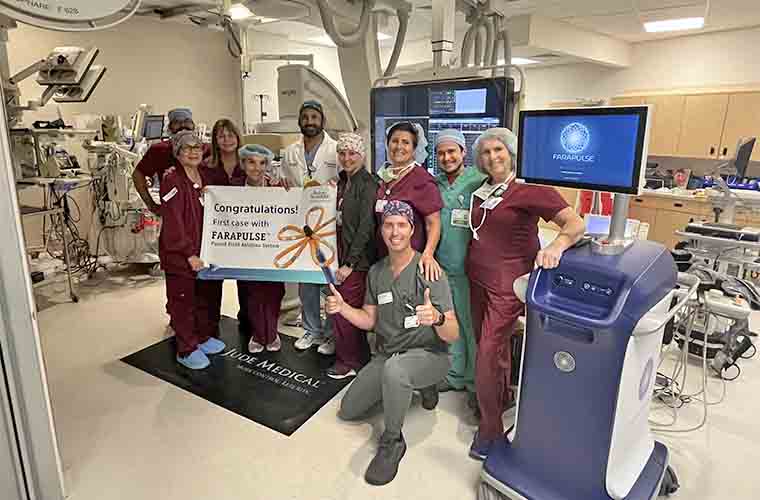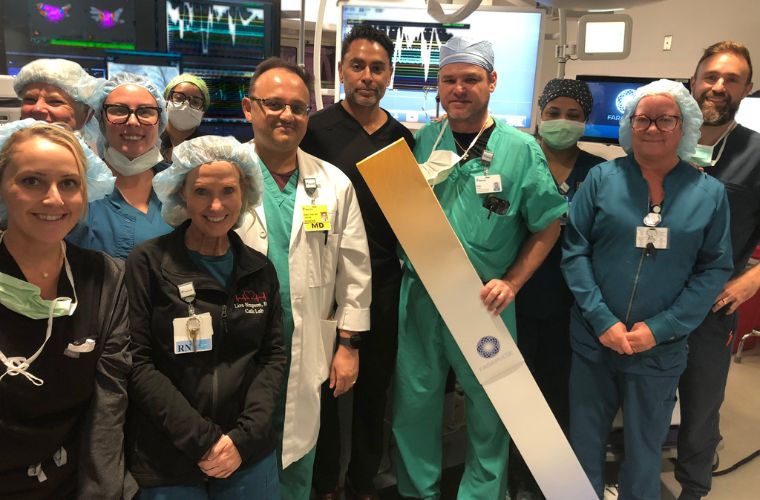BayCare Brings New AFib Treatment to the Tampa Bay Area

BayCare’s Morton Plant Hospital in Clearwater recently became the first in Tampa Bay to offer patients an innovative treatment for atrial fibrillation (AFib) using pulsed energy to target abnormal tissue. This week, St. Joseph’s Hospital in Tampa also began offering the treatment.
BayCare Medical Group Electrophysiologist Vaibhav Moondra, MD, performed Morton Plant Hospital’s first case on March 11, and Interventional Cardiologist Kevin Makati, MD, performed St. Joseph’s Hospital’s first case on March 26. Both hospitals are using Boston Scientific’s FARAPULSE™ Pulsed Field Ablation (PFA) System.
In trial studies, the FARAPULSE™ PFA System’s ability to use pulsed field energy to specifically target the abnormal cells significantly reduced the risk of harming any healthy tissue around the heart.
For years, the standard of care for AFib has been thermal ablation, a procedure where an electrophysiologist guides a catheter to the interior of the heart and generates extreme temperatures – hot or cold – to destroy targeted areas in the heart associated with abnormal heart rhythms. The procedure carries a small risk of causing damage to surrounding areas, such as the esophagus, or important veins leading from the lungs to the heart.
The FARAPULSE™ PFA System allows for more accurate targeting of heart tissue with less vulnerability for surrounding tissues, therefore, minimizing risks.
“We are proud to be offering our patients the newest technology to treat AFib,” Dr. Moondra said. “We are dedicated to providing the safest, most effective treatment and surgical procedures for all of our patients.”

The U.S. Food and Drug Administration (FDA) approved the FARAPULSE™ PFA System for commercial use on Jan. 31, 2024, after positive 12-month results from the ADVENT trial.
AFib occurs when the upper and bottom chambers of the heart do not beat in sync, causing irregular and often rapid heart rhythms. The condition affects about seven million Americans, and the Centers for Disease Control and Prevention (CDC) estimates that 12 million people in the U.S. will be diagnosed with AFib by 2030. People who suffer from AFib are at a higher risk for stroke, heart failure and other heart-related complications.
For more information, visit Morton Pant Hospital’s heart arrhythmias and treatment options page.
Editor’s note: We strive to provide our readers with the most accurate and up-to-date information. This article was revised on 3/28/24 to reflect recent developments.
